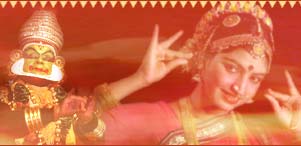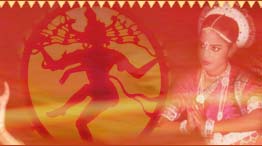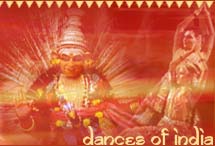Born On: May 1, 1944
Born In: Mumbai, Maharashtra
Career: Indian Classical Dancer
Nationality: Indian
There is a saying by a dancer that says 'We dance for laughter, we dance for tears, we dance for madness, we dance for fears, we dance for hopes, we dance for screams, we are the dancers, we create the dreams.' An infamous profession a few years back, with professionals being called by names such as 'nautch girl', dancing came a long way from its modest beginning, and much credit for the same goes to dancers like Sonal Mansingh. She fought her way and took up dancing when it still had not gained respectability as a profession. She grew up in a family, which practiced the values of the free Indian spirit through their living. For her contributions in the field of "Classical dancing" she has received accolades from many national and international organizations. She was the youngest recipient of Padma Bhushan, in 1992. In 2003, Sonal became the first Indian woman dancer to be awarded with Padma Vibhushan. Sonal is best known for her Odissi dance; nevertheless she is a social reformer, philosopher, examiner, speaker, choreographer and trainer too.
Early Life
Sonal Mansingh celebrates her birthday every year on May 1, 1944. Born to Arvind and Poornima Pakvasa, a noted social worker from Gujarat and Padma Bhushan winner in 2004, Sonal was the grand daughter of Mangal Das Pakvasa, a freedom fighter, and one of the first five Governors of India. As such, state guests like Ravi Shankar Shukla, O P Mishra, Uday Shankar and M S Subbalakshmi frequented her home. Her grandfather instilled in her, timeless values that she still cherishes today and encouraged her artistic talents, which she wanted to use to serve the cause of culture with dignity through dance. Born into an open-minded family, Sonal took to dancing at the tender age of four. She started with learning Manipuri dance after which she started learning Bharatnatyam from various gurus belonging to the Pandanallur school, including Kumar Jayakar in Bombay. Academically, Sonal earned "Praveen" and "Kovid" degrees in Sanskrit from Bharatiya Vidya Bhavan and B.A. (Hons) degree in German Literature from Elphinstone College, Bombay. At the age of 18, Sonal went to Bangalore, much against her family's wish, and took training in Bharatnatyam under Prof. U.S. Krishna Rao and Chandrabhaga Devi. Three years later, in 1965, she learnt Odissi from Guru Kelucharan Mohapatra.
Career
Sonal Mansingh's dancing career started in 1962 with her Arangetram in Mumbai. In 1977, she founded the Centre for Indian Classical Dances (CICD) in New Delhi, where, till date, she has trained four generations of dancers well-versed in dance, music, yoga, Sanskrit, and knowledge about India's vast culture. Over the years, dance has taken her all over the world and brought her many awards, including the Padma Bhushan (1992), Sangeet Natak Akademi Award in 1987, and the Padma Vibhushan, India's second highest civilian award, in 2003, thus making her the first woman dancer in India to receive such an honour. This was followed by the Kalidas Samman of Madhya Pradesh Government in 2006. In April 2007, she was conferred with a Doctor of Science (Honoris Causa) by the G.B. Pant University, Uttarakhand at Pantnagar. She is also the first recipient honoured with the title 'Kameshwari' at the ancient temple of Ma Kamakhya in Guwahati, Assam. To mark the completion of 40 years that she dedicated to dance, in 2002, noted Hindi film director, Prakash Jha made a documentary film on her entitled 'Sonal', a film that also won the National Film Award for Best Non-Feature Film for the year.
Contribution To Dance
Sonal Mansingh has danced to several of her own choreographic works and has been responsible for a large number of group productions. This body of work is unique in range and scope in the history of Indian dance, and covers several themes, both of traditional and contemporary interest. For her contributions in the field of "Classical dancing" she has received accolades from many national and international organizations. She was the youngest recipient of Padma Bhushan, in 1992. In 2003, Sonal became the first Indian woman dancer to be awarded with Padma Vibhushan, the highest civilian award for dance to this date.
Legacy
Sonal Mansingh brings her own vision and creativity to Indian mythological stories as well as to contemporary issues, with her subtle control and mastery over both form and content. Lately her work has veered towards issues concerning women, environment, prison reforms and re-interpretation of ancient myths. Through an indefatigable participation in seminars, discussions, writings, teachings, workshops and lectures, she shares her perceptions and concerns.
Awards & Honors
1985: Nritya Choodamani, Sri Krishna Gana Sabha, Madras
1986: Nrityakala Kaumudi, Kala Priya, Nellore
1987: Sangeet Natak Akademi Award
1989: Vishwa- GurjariAward
1990: Bhai Veer Singh International Award, New Delhi
1991: Rajiv Gandhi Excellence Award, New Delhi
1992: Padma Bhushan by President of India, New Delhi
1994: Indira Priyadarshini Award, New Delhi
1995: Medal of Friendship from the Council of State of Cuba; Sanatam Nritya Samman, Delhi
2003: Padma Vibhushan, India's the second highest civilian award
2006: Kalidas Samman of Madhya Pradesh Government,
2007: Doctor of Science (Honoris Causa) by G.B. Pant University, Uttarakhand
Timeline
1944: Born in Mumbai, Maharashtra
1948: Started with learning Manipuri dance
1951: Started learning Bharatnatyam from various gurus
1962: Took training in Bharatnatyam under Prof. U.S. Krishna Rao and Chandrabhaga Devi
1965: Learnt Odissi from Guru Kelucharan Mohapatra.
1977: She founded the Centre for Indian Classical Dances (CICD)
2002: Prakash Jha made a documentary film on her entitled 'Sonal'




